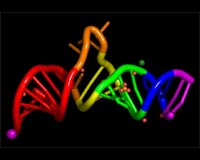| . |  |
. |
Hong Kong (AFP) Feb 17, 2011 "Big Snake Mak" has a secret weapon to fend off the threat of flu -- it wriggles and hisses in a basket at his side. Snakes have been used in China for thousands of years to cure a host of ailments -- snake-fermented wine for arthritis, snake genitals for the kidneys and male sex drive, snake gall bladder for bronchitis. And snake, says "Big Snake Mak" -- otherwise known as serpent salesman Mak Tai-kwong -- is a proven flu fighter. "Those that eat snake bile four to five times every year will have a stronger body and will have much lower chances of contracting the flu," Mak told AFP as he pulled a king cobra from his basket that he will kill, cook up and sell. "Look at me, I'm over 80 but I rarely have the flu. It's because I eat snake regularly." While not everyone would be inclined to follow Mak's lead, some in the teeming city of seven million are turning away from the traditional flu jab in favour of Chinese herbal treatments. Freelance photographer Vincent Du used Chinese medicine for chronic asthma as a child and reckons that herbal remedies keep the flu bug at bay -- and ward off long-term illness. "Western medicine takes effect faster but often has a lot of side effects," he said. Bian Zhao Xiang, director of the Chinese medicine clinic at Hong Kong's Baptist University, said the number of flu patients at the clinic increased by 37 percent in the latter part of last year compared to the same period in 2009. The university plans to build a HK$800 million ($100 million) teaching hospital that would provide the city's first in-patient Chinese medicine treatment. "Chinese medicine is by far a better treatment for seasonal flu (compared to Western medicine), in terms of its effectiveness, side effects and symptom control," he said. "In Chinese medicine, every patient will receive a personalised, tailor-made set of treatments specific to their body type." Hong Kong is particularly nervous about infectious diseases, with at least 12 lives lost since the end of January to the deadly swine flu strain of the disease. Dozens have been admitted to intensive care units with flu of some kind this year. Officials from the city, which has some of the most densely packed neighbourhoods in the world, have been nervous since the 2003 SARS virus outbreak which killed 300 people in Hong Kong and another 500 around the world. There is little concrete evidence of Chinese medicine's effectiveness as a flu killer, but many in the city and across China swear it works. Chinese treatments involve using herbs such as powdered honeysuckle and forsythia, to keep the body's Han (cold) and Re (hot) energies in harmony -- in addition to a healthy diet and acupuncture treatments. Traditional remedies have been a crucial part of healthcare in China for thousands of years, and used for everything from disease prevention and treatment for diseases to relieving pain and soothing restlessness. Hong Kong and China's central government have both urged citizens to use different herbal concoctions to beat the flu, and other ailments. Even everyday foods like garlic, ginger, spring onion and vinegar can help ward off influenza, some say. However, like some Western medicines, the Chinese variety have drawn criticism with questions swirling about the production facilities and manufacturing standards in Hong Kong. Even the industry concedes about half the Chinese medicine sold in Hong Kong had not been tested for the presence of toxic materials such as heavy metals and pesticide residues. In response, the city's government introduced new legislation in December, banning all unregistered proprietary Chinese medicine with a maximum fine of HK$10,000 and two years in jail. The move sparked anger among many Chinese medicine practitioners, but there seems little doubt Hong Kong residents will keep using traditional remedies despite the new regulations. "Many youngsters nowadays turn to Chinese medicine," said Qiu Hong-zhen, a shopkeeper at a pharmacy that sells both Chinese and Western medicine. "Western medicines are mostly for those looking for a quick fix, but it does not get to the root of the problem -- Chinese medicine is a thorough solution."
Share This Article With Planet Earth
Related Links Epidemics on Earth - Bird Flu, HIV/AIDS, Ebola
 A New Way To Attack Pathogens
A New Way To Attack PathogensRochester NY (SPX) Feb 16, 2011 Scientists have discovered a new way to attack dangerous pathogens, marking a hopeful next step in the ever-escalating battle between man and microbe. In a paper published online Feb. 10 in the journal PLoS Pathogens, scientists demonstrate that by stopping bacteria's ability to degrade RNA - a "housekeeping" process crucial to their ability to thrive - scientists were able to stop methici ... read more |
|
| The content herein, unless otherwise known to be public domain, are Copyright 1995-2010 - SpaceDaily. AFP and UPI Wire Stories are copyright Agence France-Presse and United Press International. ESA Portal Reports are copyright European Space Agency. All NASA sourced material is public domain. Additional copyrights may apply in whole or part to other bona fide parties. Advertising does not imply endorsement,agreement or approval of any opinions, statements or information provided by SpaceDaily on any Web page published or hosted by SpaceDaily. Privacy Statement |